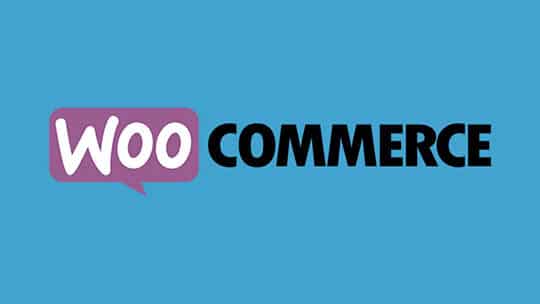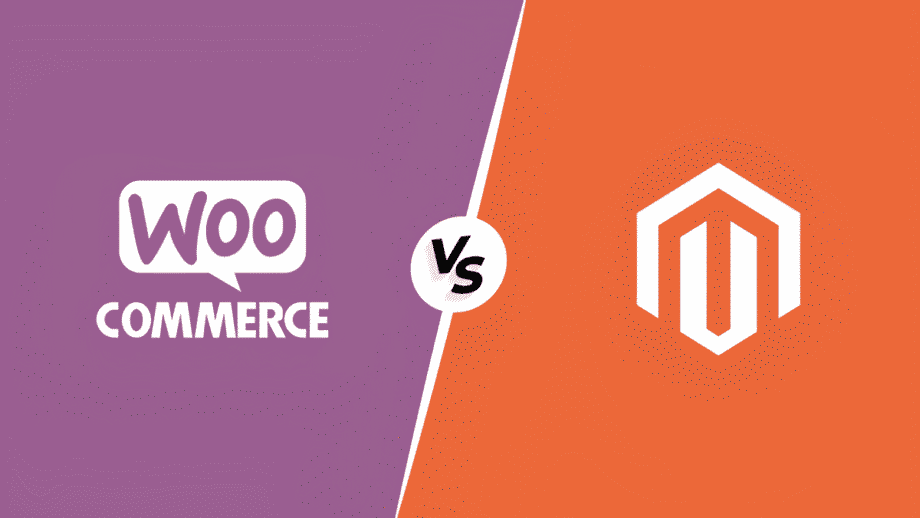WooCommerce and Magento are the two most popular platforms as of 2024, and their popularity does not seem to fade any sooner. This popularity increases with the number of stores launching on each of the platforms. The number of stores is not the only reason behind the increasing popularity of these two platforms; the features offered are also key contributors.
The choice of these two platforms varies from one store to the next depending upon varying requirements and business size. The number of live websites with the Magento platform is 130,044 as of June 2024. On the other hand, the number of live websites for the WooCommerce platform is 246,800 as of September 2024.
The statistics very well explain which of these two platforms is the best and most preferable, but the competitive advantage for WooCommerce is greater than these numbers. The comparison of multiple aspects and features of these two platforms is the reason why the number of stores migrating to WooCommerce from Magento is increasing.
In this blog, we will deeply analyze the benefits offered by these two platforms and why one platform is the ideal option compared to the other.
What is WooCommerce?

WooCommerce is an open-source plugin for WordPress that fits the needs of online stores of different sizes and requirements. The smooth and seamless integration with WordPress is not the highlight of this platform, but the wide range of payment gateways it offers is also notable.
If you are familiar with WordPress, then WooCommerce is something that you need to choose for your ease. It offers a simple interface with no complexity involved in the management of your online store.
The highlights of WooCommerce are:
- Better store customization.
- User-friendly interface.
- Easy to use.
- Compatibility with WordPress themes and plugins.
These are just a few perks offered by this platform; the list is long, and you will explore it in the paragraphs below.
What is Magento?

Magento (now Adobe Commerce), on the other hand, is an open-source eCommerce platform that enables you to add additional features and functionality to your store with great flexibility. However, the ease of use provided by WooCommerce is unmatchable, which is missing with Magento.
While this platform has certain shortcomings, some negligible benefits are offered as well. Magento is an ideal platform to choose when you have advanced technical expertise and coding knowledge.
Some highlights of the Magento platform are:
- It is a feature-rich platform.
- Fits well with scalability needs.
- Multi-channel selling options.
Regardless of all these perks, the biggest barriers to the use of this platform are its complexity and the need for expert handling.
WooCommerce vs Magento: A Comparison

The comparison of these two platforms is what you need to know if you are still confused about which platform to choose for your online store. Both Magento and WooCommerce have their pros and cons that make one think twice before making a decision. However, comparing the plus points of these two will help you in making your decision without any doubt.
These are some of the aspects for which we will compare the two platforms — Magento and Woocommerce:
1. Ease of Use

The ease of use is a key factor in deciding which of the platforms you want to choose for your online store. The platform you choose must not increase the complexity of managing your website.
Ease of Use With WooCommerce
WooCommerce is an intuitive platform with great ease of use for people with no prior technical expertise. If you are familiar with WordPress in advance, then working with WooCommerce is way too easy. These are some factors that make WooCommerce an easy-to-use option:
- Ease of installation.
- A gentle learning curve.
- User-friendly interface.
Ease of Use With Magento
When opting for Magento, one thing you need to be prepared for is the technical skills and expertise. Magento is more developer-centric and users with no web development expertise may struggle. These are the factors you may encounter using Magento:
- Steeper learning curve.
- Installation requires expertise.
- Developer friendly.
By looking at the ease of using both platforms, we can clearly see that WooCommere is much easier to use.
2. Flexibility

Flexibility is defined by the opportunities offered by these two platforms to extend the features and functionality of extensions and plugins. The higher the flexibility, the better it will be for your online store to outperform all the competitors.
WooCommerce Flexibility
WooCommerce allows you to make product changes and other operations with a much more familiar interface without encountering any significant barriers. The opportunities WooCommerce offers to customize your store make it a flexible solution. We can define the flexibility of WooCommerce as:
- Easy theme and plugin integration.
- Customize functionality through coding.
- Built-in plugins and extensions.
Magento Flexibility
Like WooCommerce, Magento also offers the flexibility to customize your online store according to your specific needs and requirements. However, to benefit from this level of flexibility, you need to have the required skills.
- Customization of checkout processes and large product catalogs.
- Seamless API integration for enhanced store functionality.
- Extensive plugins but expensive premium versions.
Although the flexibility and customization offered by Magentor are better than WooCommerce, the complexity of the platform itself makes it less preferable.
3. Scalability

When it comes to eCommerce stores, scalability needs are always higher, and your platform must offer scalable solutions. Your business grows with every sale and the platform you choose should accommodate this scalability without compromising on its performance and security.
WooCommerce Scalability
For small to medium-sized businesses, scalability needs are fulfilled well with WooCommerce. It gives your small or medium-sized business to flourish and grow without significant website performance or security issues. The scalability of WooCommerce is defined as:
- Scalable for small-sized businesses.
- Scalability can be improved with a better host.
- Caching is required to meet performance standards with store growth.
Magento Scalability
Magento is the best fit when it comes to scalability needs for your online store. This platform can manage your store irrespective of its growing traffic. You do not need to worry about your website’s performance issues due to increasing traffic with Magento.
Magento offers:
- Better performance in peak hours and increased traffic.
- Still depends on the website host for better performance and traffic handling.
Comparing the scalability benefits of WooCommerce and Magento, we can say that Magento gets a slighter edge, but you can still improve it in WooCommerce with a better hosting provider.
4. Security

Security of the website is one of the utmost concerns for many online businesses and one should not compromise on website security. Website security is not just important for your store’s survival, but it is also important from the user’s perspective. Improved website security injects trust in your website visitors.
WooCommerce Security
WooCommerce itself is a secure platform that offers multiple built-in security features with the freedom to integrate other security plugins. These built-in security features make WooCommerce an ideal deal in terms of security and cost.
Magento Security
With Magento, you have to rely on third-party plugins and security patches to improve your website’s security. This makes Magento an expensive deal, and the threats to your website also increase in some cases. The use of too many third-party plugins works as a backdoor for intruders to damage the integrity of your website.
The increasing website security needs make Magento to WooCommerce migration mandatory.
5. Plugins & Extensions

The increasing need for additional website features and functionalities necessitates the need to integrate plugins and extensions. Each plugin integrated into your website has a designated purpose, and it serves that purpose. Both Magento and WooCommerce have an extensive range of plugins to offer.
WooCommerce Plugins
WooCommerce has an extensive range of built-in plugins and extensions to meet your varying functionality requirements. Some of the plugins are free, and to unlock the premium features, you may have to pay a certain amount quarterly or yearly. We can say that WooCommerce offers the best plugins for your store.
These are some features that define the WooCommerce plugins:
- Automated plugin updates.
- Secure plugins.
- Cost-effective.
Magento Plugins
Magento has some paid plugins to offer along with free and paid third-party plugins for your online store. We can say that with Magento, you have to rely mostly on third-party plugins to meet your functionality needs.
These are some factors that can define the Magento plugins:
- Requires manual updates.
- Costs may increase.
Based on the plugins and extensions, we can clearly prefer WooCommerce over Magento because of the automated plugin update benefits.
6. SEO & Marketing

The online visibility of your store depends on how optimized your website is. The eCommerce platform you choose must add to the optimization and marketing of your online store for better visibility, website traffic, and sales.
WooCommerce SEO
As WooCommerce is a WordPress plugin and its integration with WordPress brings a lot of optimization benefits and opportunities for your website. One of the best plugins for improved SEO is the Yoast plugin, which helps you improve your website’s visibility. The list of such plugins goes on, and RankMath is one significant plugin you can benefit from.
These are the SEO features WooCommerce offers:
- Add breadcrumbs.
- Optimize titles.
- Image optimization.
- Adding meta tags.
Magento SEO
Just like WooCommerce, Magento also offers several SEO and marketing benefits to boost your website’s ranking. Some of these optimization features are free of cost, and to unlock the advanced optimization features, you have to opt for paid tools. Moreover, to configure the built-in SEO features, you need to have someone with technical knowledge.
Magento offers these SEO opportunities:
- URL optimization.
- Adding meta tags.
- Generating HTML and XML sitemaps.
- Integrating Google Analytics.
- Generating Robots.txt.
Both WooCommerce and Magento offer optimization and marketing benefits for your website to improve visibility and sales. However, with Magento, you have to have the technical understanding to configure the benefits.
Final Thoughts!

Magento and WoCommerce are the two biggest names that one can count on for your eCommerce solutions. The choice of choosing either of these depends upon individual business needs and targets.
While Magento has its high points, it also has its shortcomings, making it less suitable for your online store. Similar is the case with WooCommerce, but when we compare the preferability and cost of WooCommerce with Magento, the vote always goes to Woo.
Whether you have built your store already or are looking for a reliable eCommerce platform, WooComerce is the go-to choice for many online businesses. If you have not built your store yet, consider WooCommerce as your first choice because of the benefits it offers.
Even if you already have your store on Magento, you can choose a Magento to WooComerce migration plugin to migrate to your desired solution with ease and safety.





